This post may contain affiliate links. This just means I may receive a small commission at no extra cost to you for helping them promote their product or service. I don’t endorse any services I don’t personally use or recommend.
This is your ultimate Pakistan travel guide. On our first visit to Pakistan, I confidently strode across the Wagah Border, a desolate little area dividing India and Pakistan, with little to no preparation. I assumed that traveling in Pakistan would be relatively similar to traveling in India. They had been one country just 70 years before, after all. But I was wrong.
Traveling in Pakistan was infinitely MORE complicated than an already difficult India.
And it became immediately apparent when we struggled to access any currency on the Pakistani side of the border. The ATM was broken. Not just broken, the entire network was down, which meant that ALL ATMs in the vicinity were effectively broken.
This first mistake, not carrying an abundance of cash in a currency other than the Indian Rupee, was the first of many, and it started our foray into Pakistan on the wrong foot. This blog post is meant to save you from all that. After visiting Pakistan several times, I have gathered several sanity-saving tips for travelers hoping to travel here independently. But don’t fret; we ended up LOVING this complicated country, and you will too.
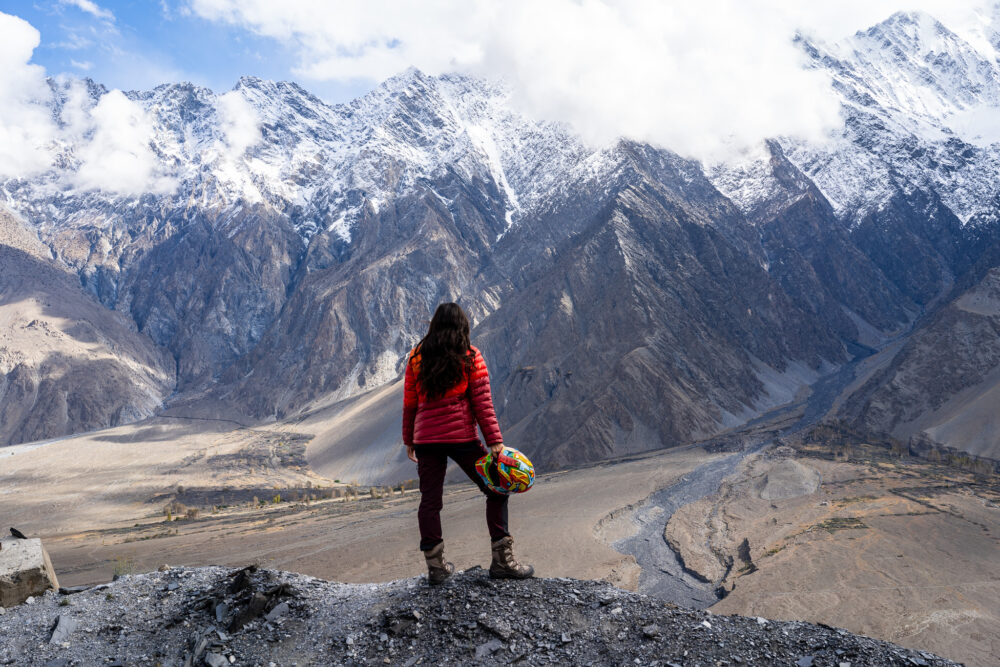
Pakistan Travel Guide: Everything You Need to Know
This comprehensive Pakistan travel guide is designed to give you a general idea of what traveling in the country is like and to help you avoid the majority of the faux pas that we made on our first trip.
Before You Try to Enter the Country…This is What You Need to Know
These are the things to know + do BEFORE you enter the country.
1. Pakistan requires most travelers to get a visa ahead of time.
Good News! As of August 2024, this process just got a whole lot easier.
More than 105 countries now qualify for a FREE 3-month multiple entry visa. You DO still have to apply in advance, but the process is much simpler and no longer requires you to input a LOI or letter of invitation. All you need now is a recent passport photo and to fill out the forms 3 days before your visit.
If you plan on staying in Pakistan for a long time, know that extending your visa is very easy; you just apply online.
Pakistan/India Conundrum: Unfortunately, these two countries, while right next door to one another, don’t like one another. This matters to you because it is difficult (very) to get a visa through the online system while in either of them. If you plan to visit both countries, you should apply for your visa to each one before entering either of them. Read my blog post on crossing the Wagah Border for more information.
2. To obtain said visa, you will need an LOI (Letter of Invitation).
As of 2024, this is no longer applicable! Good news!!
The good news is you don’t have to know someone personally to get one. A hotel can provide one for you. Hotels, however, are charging around $100+ for each LOI. The cheapest option is to obtain an LOI from Alex at Lost With Purpose.
Here’s the link to get one from her and her Pakistani business partner, Sana.
As a bonus, they are THE people to know in Pakistan for all kinds of travel. They can also answer your questions to help you plan the perfect trip. You can stay at their hostel in Islamabad, rent motorbikes from them, or join one of their tours in Spring and Fall.
3. The Israel Issue
While I still recommend getting a new book just in case, the new Pakistan visa process doesn’t require you to list the countries you have previously visited. So, technically, they would have no way of knowing you have been to Israel.
Pakistan and Israel do not get along. In fact, Pakistan will not permit you to enter if you have an Israeli stamp in your passport. Often, Israel will skip stamping your passport due to this reason. But if you have one, you must travel on a different passport to Pakistan. Just get yourself a fresh book.
I should also mention in this Pakistan travel guide that you cannot visit Pakistan on an Indian Passport.
4. Weather matters when planning your trip.
Best months to visit: April/May, September/October.
While it does depend on what you want to do in the country, summer (June/July/August) is probably not the ideal time to plan a visit. Unless you are coming to Pakistan solely to ride a motorcycle through the mountains, in which case…check my Pakistan motorcycle itinerary.
It’s worth noting that summer temperatures reach upwards of 110 F with ease in the major cities. A/C is also not ubiquitous. On the other side of the coin, if you plan your visit during the winter months of Nov/Dec/Jan/Feb many of the mountain passes in the North will be closed. Limiting where you can go and honestly, making your trip a frigid nightmare.
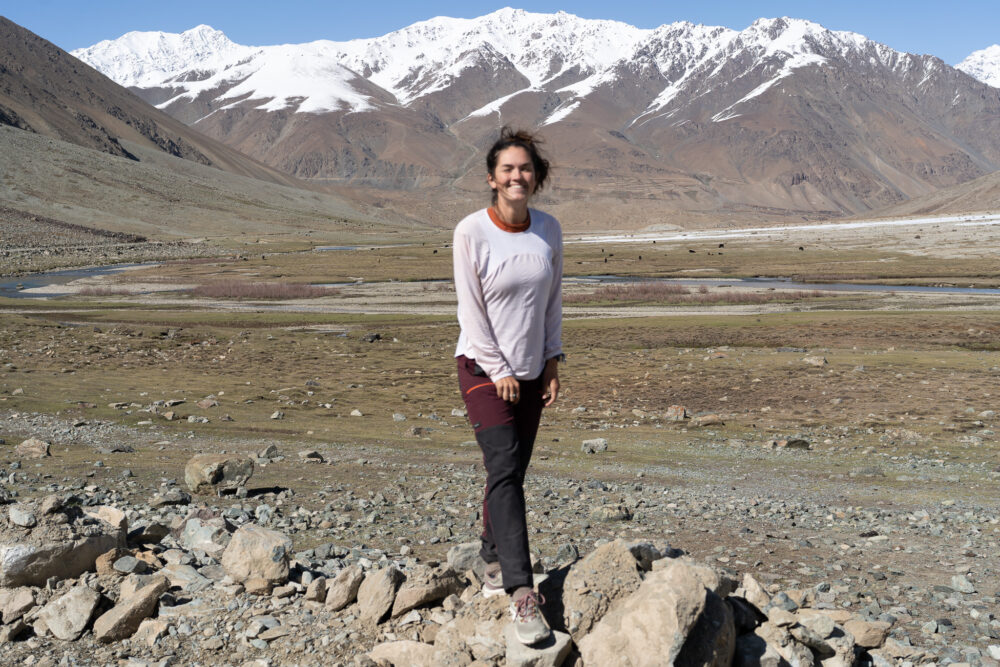
5. Muslim holidays like Ramadan will also greatly affect your trip.
Pro: Fewer crowds, a unique cultural experience.
Con: Most restaurants will be closed during the daytime, and you can’t eat in public. Hotels also often switch their breakfast times to 4 AM to accommodate Ramadan, so you won’t even get that meal without waking in the middle of the night.
Upcoming Ramadan Dates:
2025: March 1 – March 29
2026: February 19 – March 19
2027: February 8 – March 8
2028: January 27 – February 26
6. Don’t show up without cash & bank 10,000% on an ATM
Pakistan has an abundance of ATMs. Unfortunately, the number of those that work for foreign cards is about 4. We usually set out on a quest to obtain cash that lasts a few hours. There are two banks that consistently work for us — Standard Chartered & Alfalah.
If you bring a bunch of cash with you (not Indian Rupee) you can exchange it for a pretty fair rate easily at lots of currency exchange counters throughout the major cities.
I also recommend having at least one Mastercard and one Visa debit card if you can to maximize your chances of withdrawing money from the ATM. Major cities like Lahore, Islamabad, and Karachi always have at least a few working ATMs, but outside of that, in the mountains, no promises. Stock up while you’re in town.
7. Overwhelmed by this Pakistan Travel Guide? Joining a tour can be a painless way to visit for the first time.
As you’ll see from the sheer size of this Pakistan travel guide, there’s a lot to know when visiting this country. While I don’t personally run tours in Pakistan, I know some really good people who do.
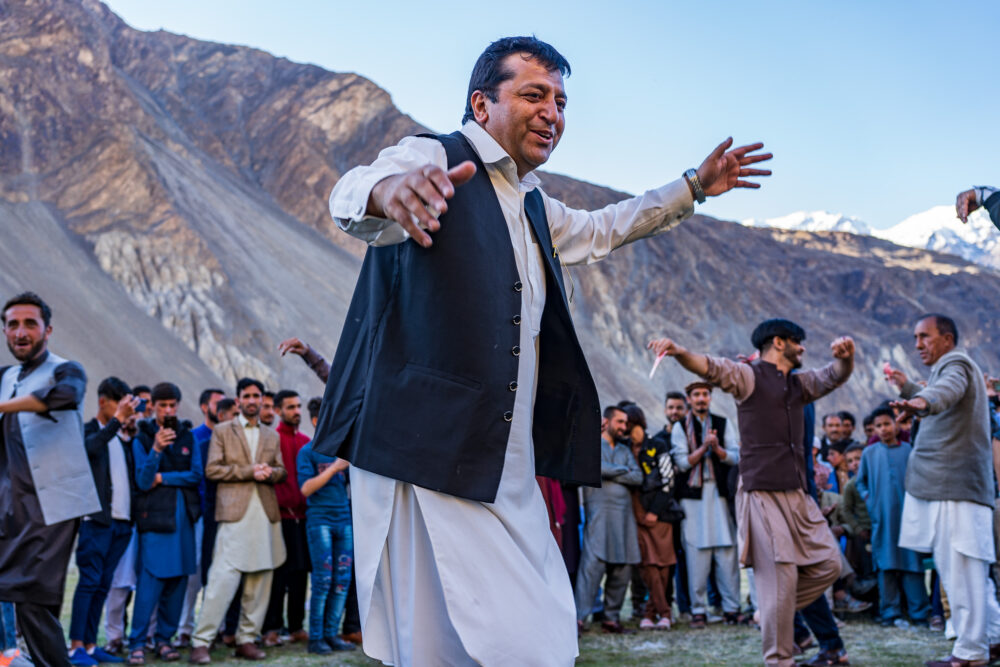
Lost With Purpose & Coyote Trail
This charismatic and knowledgeable duo runs the best tours in Pakistan. They have two consistently on offer. One is a woman’s tour run by Alex (Lost With Purpose), an American-born woman who currently lives in Pakistan. Literally, no one has seen more of a Pakistan than her. The other is a motorcycle tour led by both Alex and Sana (Coyote Trail), a local with extensive connections throughout the country. If you don’t feel comfortable riding a motorcycle, don’t fret, you can ride in the follow car they hire.
Clothing and Gear You Will Probably Find Necessary in Pakistan
Pakistan is always either too hot or too cold. There is no Goldilocks season for travelers hoping to visit the entire country. When cities like Lahore and Karachi are somewhere below boiling temperature, the mountains have already frozen over. This makes packing even more difficult. The key is layers and picking up a few local outfits along the way. They are surprisingly breezy.
Shalwar Kameez & Headscarfs
This is something you will 100% need in Pakistan. Doubly so if you are a woman. Shalwar Kameez is the traditional clothing and it can look a little like baggy pajamas at times. But because of the strict dress code in conservative areas of the country for women, this is the easiest way to abide.
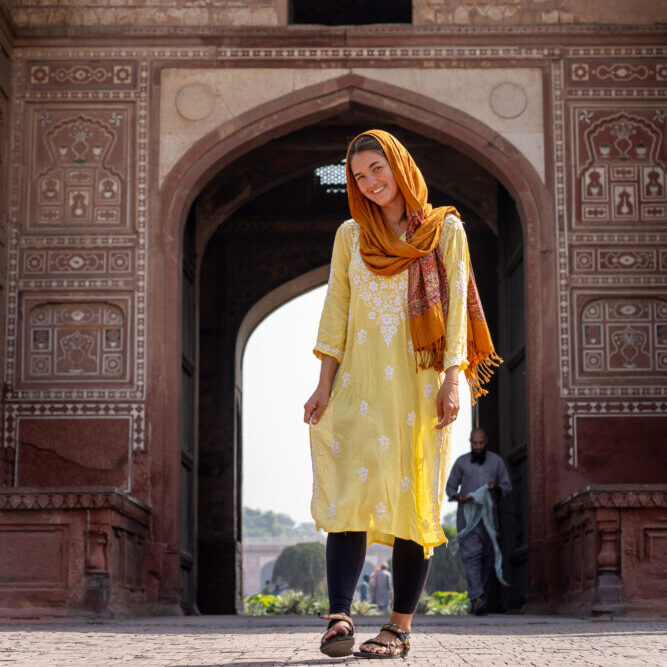
Thanks to Lost With Purpose’s recommendation, I went to Generation in Lahore upon arrival and got three colorful, comfortable Shalwar Kameez sets for about $20 each. These are obviously nicer, “trendier” ones, but you can find far cheaper ones at any casual clothing shop.
Choosing the Right SIM Card
You should get a SIM card as soon as you arrive in Pakistan, mostly for navigation purposes. If you’re okay with being consistently lost, then feel free to go without it. The biggest factor to consider when getting a SIM is where you’ll be traveling because the different brands all cover different regions of the country.
Choose a SIM based on the region you will most be traveling.
The North uses predominantly SCOM. If you really need to be connected, I suggest getting a few different SIMs, as they are very affordable.
Pakistan Travel Guide: Quick Packing List of Essentials
I think packing lists are very personal, so I’m not going to make you one. But these are some things you should bring (or plan to but) when traveling the whole country.
- Hefty Coat.
- Hiking boots.
- Lifestraw Water Bottle.
- External battery source.
- Pepto Bismol.
- Women should plan to have 3/4 to long sleeves and long pants, absolutely nothing form-fitting, and always carry a headscarf.
Planning Your Itinerary: Where Can You Independently Travel in Pakistan?
Spoiler: not everywhere.
But it’s probably for the best. Pakistan is like a country to which you gain more access the more you visit. You just have to know the right people and have a very good understanding of cultural norms.
And where you can travel changes regularly as security concerns evolve and change. Most people stick to Lahore, Islamabad, Karachi, and a trip up to Hunza Valley because these routes are always accessible to tourists. But I have a much better one-month itinerary and a motorbike route for more adventurous visitors. Here’s a *rough* (remember it’s always changing) map of where you can travel as a foreigner in Pakistan.
Pakistan Travel Guide Map
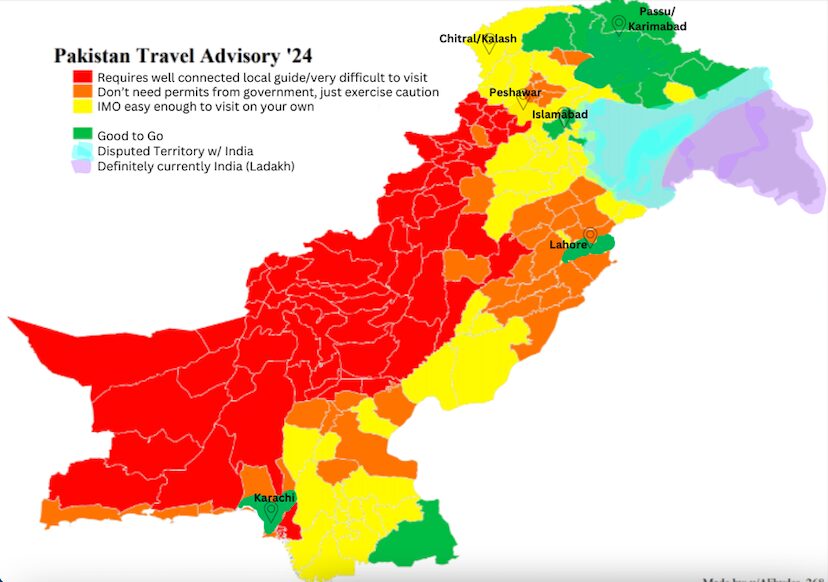
What’s to Stop You From Traveling Freely to These “Permit-Only” Places?
Police + military checkpoints. Pakistan is full of them. Even in places that everyone is allowed to visit. The government uses them to keep tabs on people within the country and maintain safety and stability in remote regions.
Most often, they just glance at your passport and visa and move on. But in the yellow/orange regions, if you are traveling on a bike or in a car (not a bus), you may be assigned a police escort. These escorts suck because they drive super slow, tell you which hotels you can stay in, and generally keep you away from all interaction with locals. I’ve been fortunate enough to travel through all the sensitive regions with my friend Sana from Coyote Trail and have thus far avoided the police escorts.
Can I get an NOC to visit these places?
An NOC is a permit obtained through the government to travel in a certain sensitive region. They are notoriously difficult to get because, often, the government simply never gets back to you. Unless you have a friend with connections in Pakistan.
An exception is usually those hoping to travel overland by motorcycle into Iran or Afghanistan.
The easiest way is with Sana. Shoot him a message on Instagram and see what he can help you with.
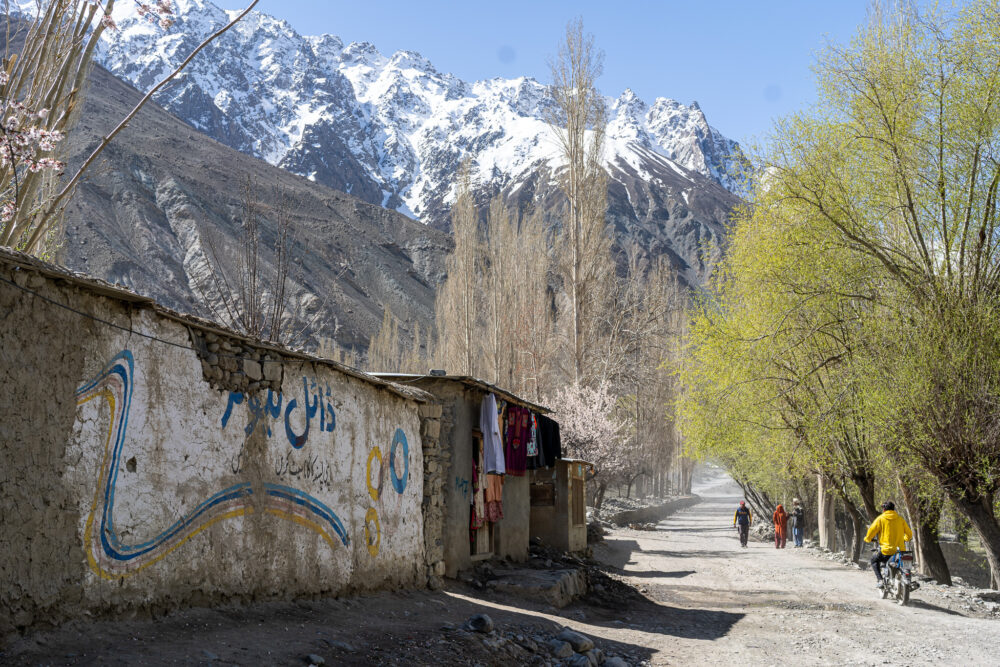
Cultural Differences That Can Get You in Trouble in Pakistan
Pakistan is not a dangerous country. But if you act like an obnoxious American and flout their cultural customs and norms, you are putting a target on yourself. This section is meant to help you understand what you can do to make your visit to Pakistan safer and more respectful of the locals.
Read More: Is Pakistan Safe? My thoughts on travel in the country as an American woman.
You are no longer an Atheist.
97% of Pakistan identifies as Muslim. 75% of the Muslims are Sunni, with Shia, Mahdavia, and Ahmadis making up the rest of the Islamic majority. There is also a small handful of Christians, Hindus, and other religions within the country. One thing there is not, though, is atheism. This has largely to do with Blasphemy Laws, which I will discuss below, but the takeaway here is that YOU should pick a religion to tell people when asked. Typically, as a Western-born traveler, it will be assumed you are Christian/Catholic.
Religion is such a cornerstone in Pakistan that it’s printed on your ID card which religion you adhere to.
Because of the situation in Gaza, I would NOT say that my religion is Judaism. Pakistan has a troubled relationship with Israel. In fact, if you have previously visited Israel, you will need to travel on a different passport to even enter Pakistan.
Blasphemy Laws: THIS IS IMPORTANT
Lots of countries around the world (70 or so) have blasphemy laws. Italy even has them. But in Pakistan, Iran, Brunei, Saudi Arabia, Afghanistan, and Mauritania– blasphemy is punishable by death. Which makes it a very serious concern.
Blasphemy in Pakistan is defined as “derogatory remarks, etc., in respect of the Holy Prophet [Muhammad] either spoken or written, or by visible representation, or by any imputation, innuendo or insinuation, directly or indirectly.”
Essentially, do not say anything bad about the prophet Muhammad.
This is why being an Atheist is dangerous territory. Because technically, by saying you don’t believe in God, you would be disregarding the prophet Muhammad. But if you follow an Abrahamic religion, it’s more of a gray area.
This is not something to joke around with. Even if the Pakistani government has little chance of finding out, it is not uncommon for people to take things into their own hands with vigilante justice when it comes to Blasphemy, and people are killed in acts of mob violence.
TLDR: Don’t say anything bad or disrespectful about the Prophet Muhammad or the Quran.
The Role of Women in Pakistan
*Sigh*. While I love Pakistan and continue to travel here, the women’s issue is complicated.
Women are allowed to get an education, go to college, live alone, and generally exist in all the same ways men can. Legally, that is. But as far as what is socially acceptable for many men in Pakistan…you’ll immediately notice that is not the case.
There’s far too much to go into here. What’s important to you as a prospective traveler is this…as a woman, things will be different than in your home country. I recommend reading my full guide for female travel in Pakistan for more information.
The other very important fact to consider is that as a foreign woman, you will be held to different standards than the local women. This is a privilege you should acknowledge and consider. You will be given more leeway and allowed to witness many things that locals of your gender never will be able to. Even something as simple as getting invited to tea by a local man.
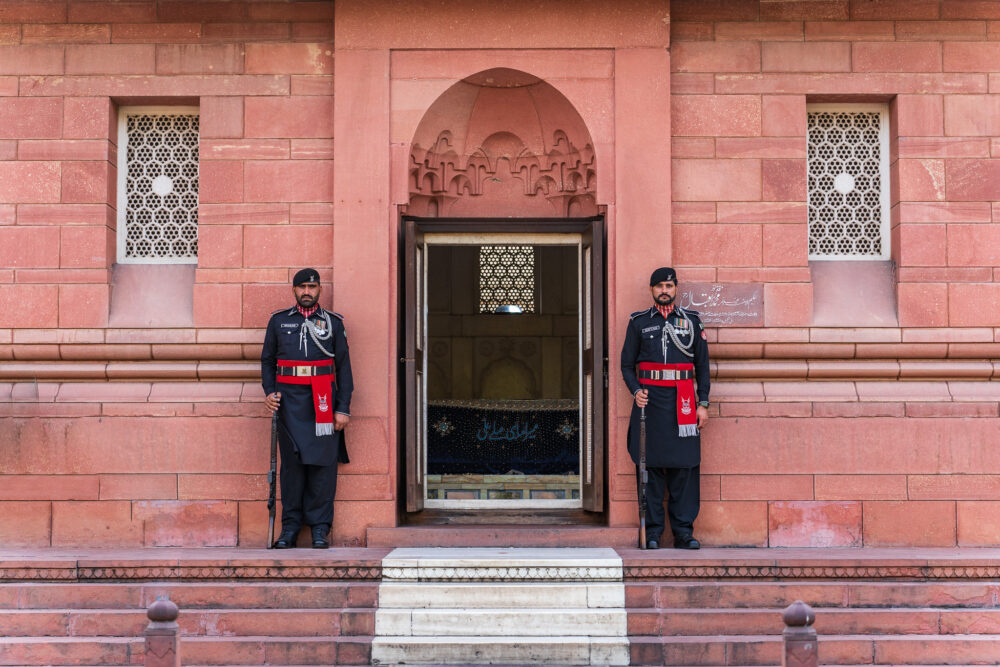
Pakistan is not an easy destination for solo female travel.
If you visit only Lahore and Islamabad, you *might* have an “easy” time. But you shouldn’t do that. I’m not saying don’t travel here as a solo woman, just that it won’t be easy. You should have certain skills before visiting and be well-versed in the customs and societal expectations of women before you fly in.
Read More: For a full look at my thoughts on what it is like to travel here, read my post on An Honest Look at Travel in Pakistan as an American woman.
Too many influencers and bloggers have come to Pakistan with a guide or on a sponsored tour and pitched the place as easy for ALL people to travel. But they only get a very sheltered view of what it’s like to travel here since they are guided the whole way.
Independent travelers in the country will face various obstacles, and women will face the added obstacle of navigating a world built entirely for men.
Avoid religious sites during prayer times.
This is a respect thing. Unless you are Muslim, you shouldn’t be in the mosques during prayer. You definitely shouldn’t be taking pictures during prayer time. The times change daily, so be sure to consider this before you head to an exceptionally beautiful mosque in the country.
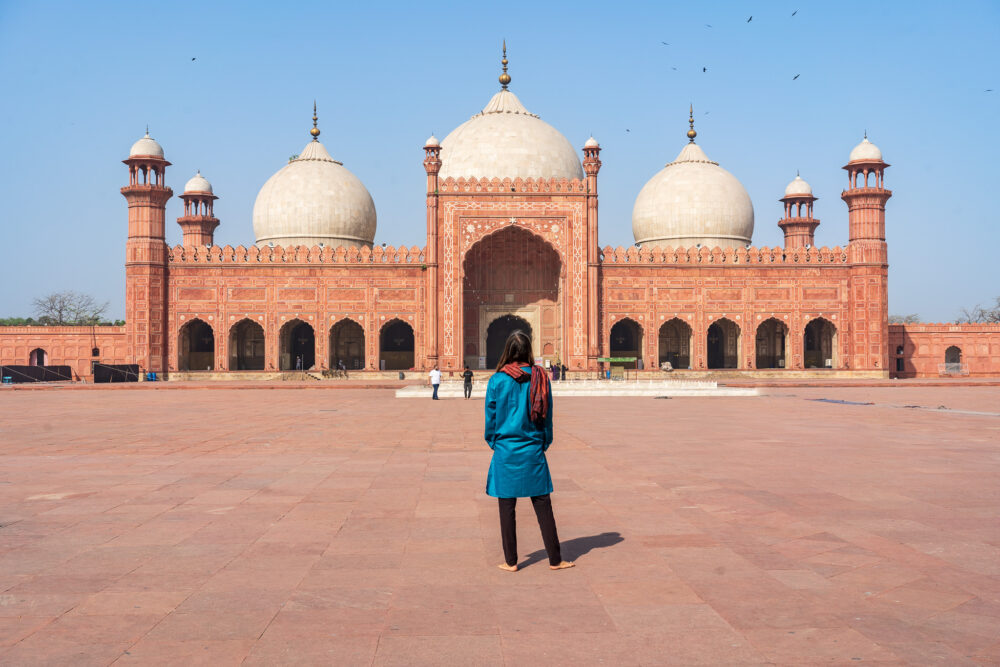
Alcohol + Hash: Use in Pakistan as a foreigner
Surprise! Both are pretty prevalent in the country. Hash even more so than alcohol.
The Pearl Continental (Peshawar) and Murree Brewery (Islamabad) are the only bars and breweries in the country. Since only Non-Muslims are allowed to drink alcohol in the country, foreigners and the 3% of Non-muslims are the only ones allowed here. If you’re looking for a drink, know that many foreign hotels do have bars with alcohol.
Hash is illegal in Pakistan. But you’ll see it throughout the country (probably). Smoke at your own risk.
Accommodation: Tips on Choosing the Best Places to Stay in Pakistan
Let’s move on from politics and rules/regulations to comfort. Specifically, how to choose a good place to stay in Pakistan.
These are my four favorite places to stay in Pakistan: three are budget-friendly & one is a little fancier.
- Coyote Den Traveler’s Hostel. (Islamabad)
- Rose Palace Gulberg. (Lahore)
- Coyote Den Ishkomen (Ishkoman Valley)
- Off-To Resort. (Karimabad) ($$)
- Hostel Nomad’s (Karimabad ($)
- Waypoint Hotel. (Karachi)
Generally, hotels in Pakistan are slightly cleaner than in India when booking budget rooms. It is very important to consider A/C if you need it and the location. I preferred not to be in the thick of the cities since I had my own transport because they were so loud. But if you will be relying on rickshaws and public transport, this probably won’t work for you.
Booking.com is the best platform to use if you choose to book ahead.
It is definitely cheaper to use Booking.com in the major cities if you have a “genius discount.” In more rural areas, the cheapest places will usually not have an online booking option. In that case, you’ll need to arrive and then ask around or use Maps.me where many of these places are labeled.
This is probably not a good destination for first-time couch surfers. But if you’re an avid user of the app then this is a great place to use it! Pakistan has some of the best hospitality I’ve ever experienced in my travels. People love to host you, feed you, and spend time with you. This makes meeting locals and learning about the country and its culture super easy.
Don’t expect consistent electricity or wifi.
Power outages are common, especially as you venture into the northern mountains. While many places have a generator to facilitate basic amenities like lights, it’s not enough to power everything. Wifi is spotty throughout the country, even when the power is on.
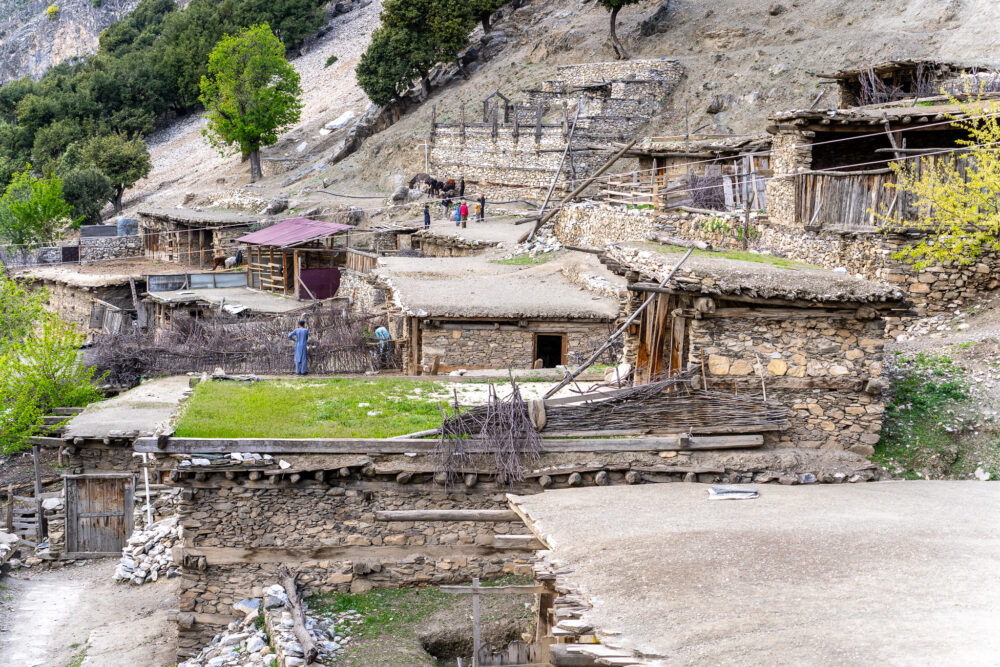
Hot water is rare, but you don’t need it.
Hot water is also a no-go almost everywhere. Instead, hotels will boil water for you to bucket shower with if required.
Transportation Tips for Getting Around in Pakistan
Let’s start with the different ways to get around this country…
Public Transport
The most common mode of transport for travelers.
- Pros: Cheap, relatively comfortable, connects all popular destinations.
- Cons: Takes forever, doesn’t stop at remote scenic sights, doesn’t go to all destinations, requires a lot of patience and waiting around.
Self-Drive
The most adventurous and also the best for reaching ALL destinations.
- Pros: Pure destination freedom, on no schedule but your own, + still very affordable.
- Cons: Not for those who can’t drive on chaotic South Asian roads.
Hired Driver
Only suitable for those with a larger budget looking to visit remote regions.
- Pros: All the freedom that self-drivers enjoy.
- Cons: More expensive. For a 20-hour journey to the North a car hire usually costs around 40,000 PKR.
What about rickshaws?
Rickshaws are an exciting and convenient way to get around cities. Specifically, Karachi and Lahore. You should always agree on a price ahead of time and be ready to pay in cash. The three-wheeled rickshaws imo tended to be the most honest. You should use your own map whenever possible as they will often try to take you by memory and it’s easier on everyone if you show them the map.
Rickshaws are actually not allowed within the city limits of Islamabad, however. For this, you’ll need a rideshare app like Careem, InDrive, or Uber.
I prefer using rideshare apps in Pakistan whenever possible. In fact, like I mentioned above, you’ll need to in many situations. They can also give you a good gauge on what the reasonable price is and are almost always a little cheaper than you’ll get with a rickshaw.
Taking the bus in Pakistan
Even if you plan to rent a motorcycle and drive yourself throughout the country, you’ll probably have to take at least one bus. Fortunately, buses in Pakistan are surprisingly comfortable.
Pakistan has the most comfortable buses in South/Southeast Asia. Full stop. Faisal Movers and Daewoo are the best ones. You can book your tickets at the local bus station (best option) or call and reserve a ticket ahead of time. Buses leave pretty much hourly to major destinations. You can see the schedule on the Faisal Movers website.
Eating in Pakistan: How and Where to Do It
Pakistan is a seriously underrated food scene.
Read More: I wrote a full guide on all my favorite places to eat in Pakistan and what to get at each.
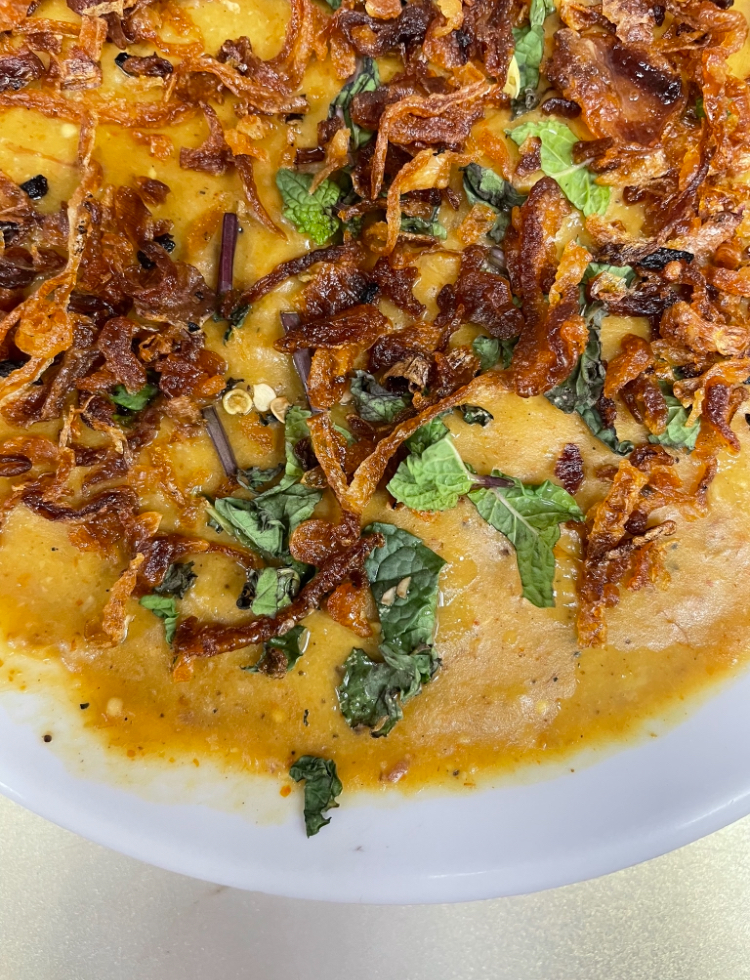
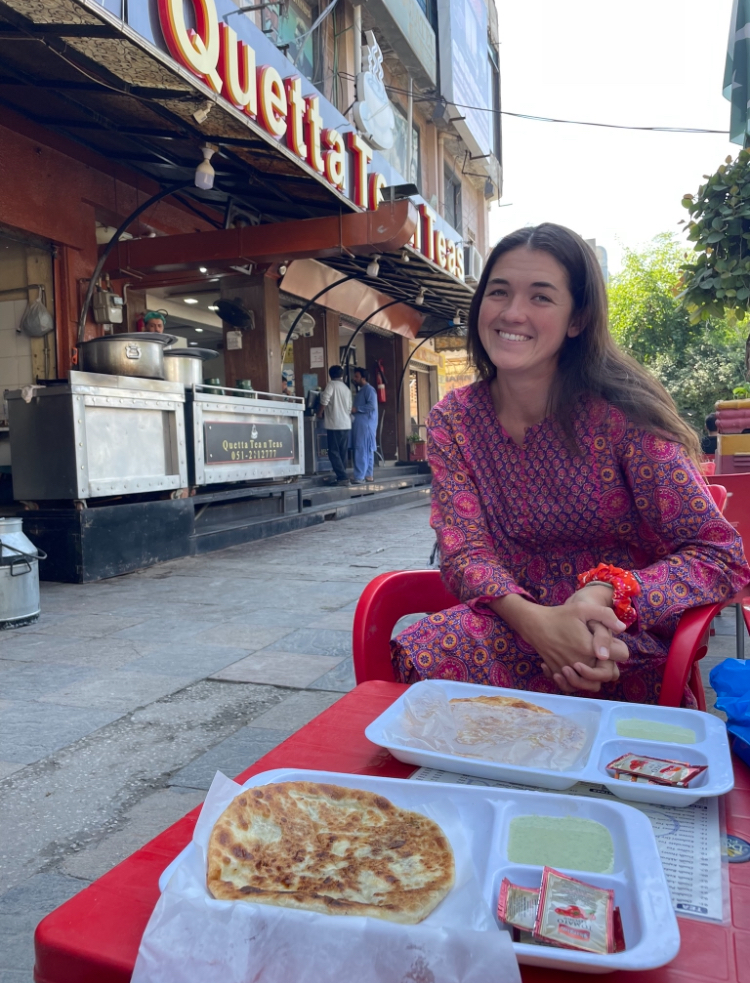
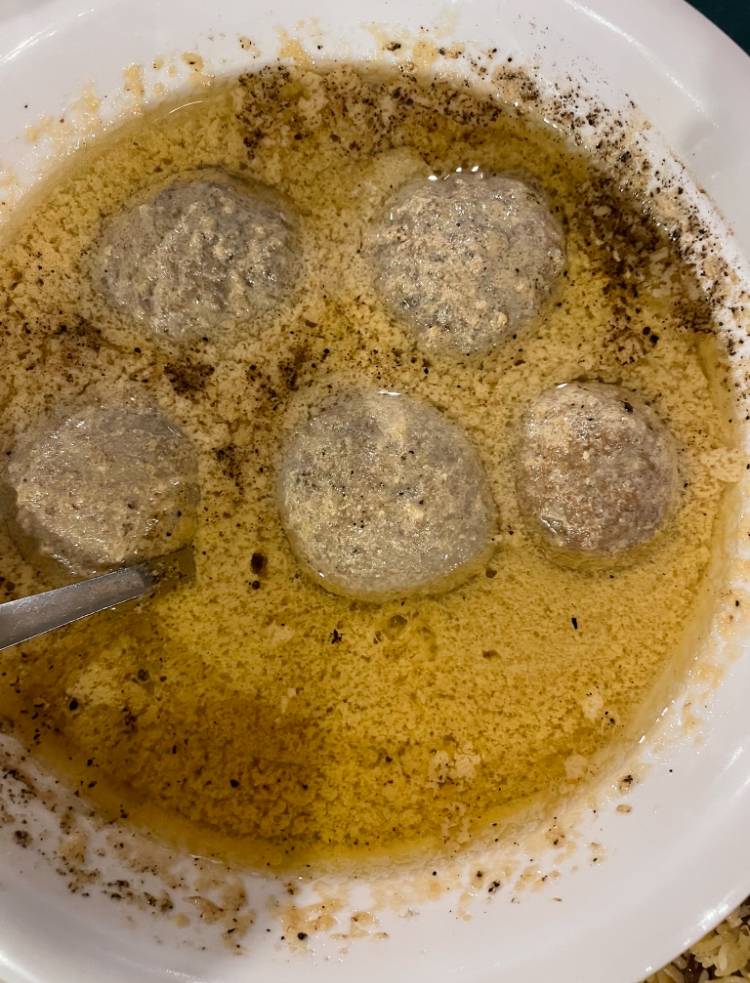
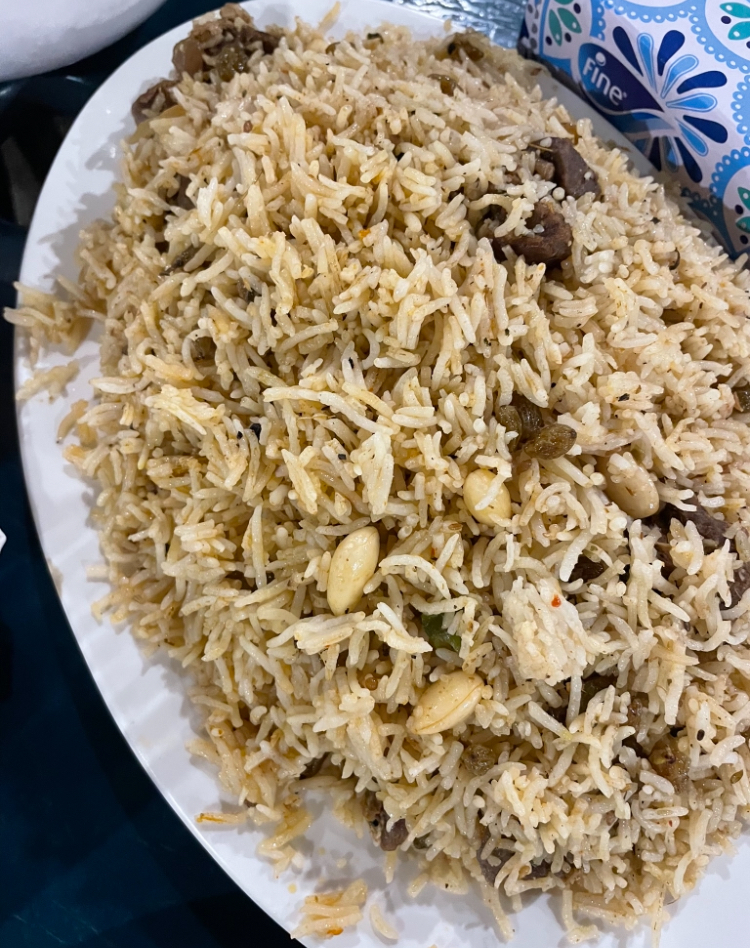
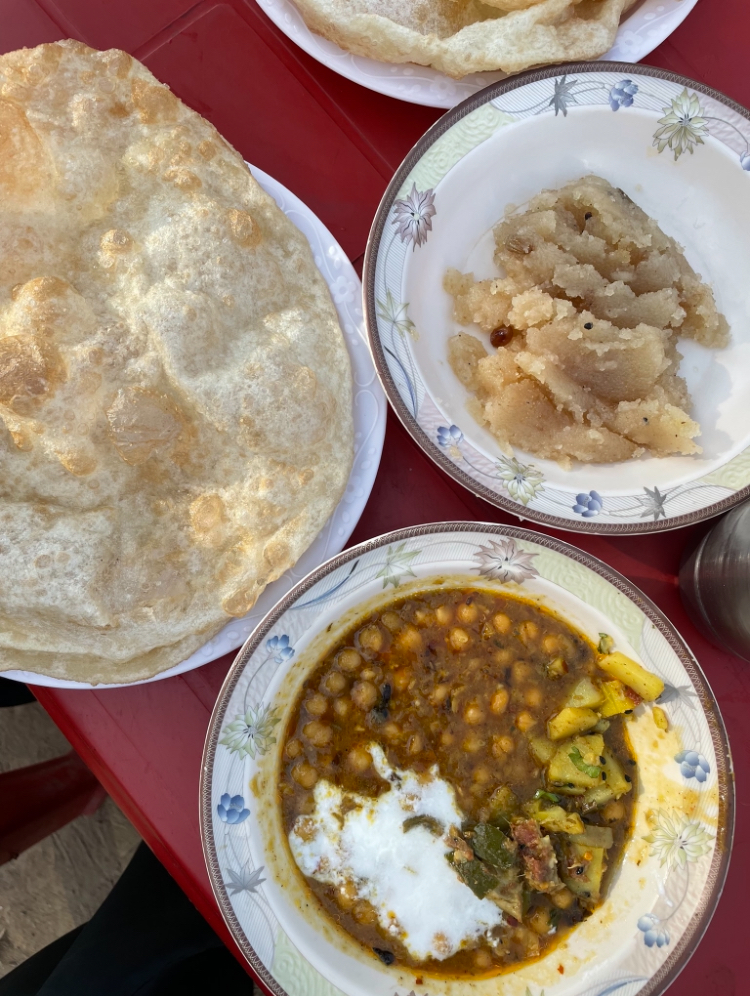
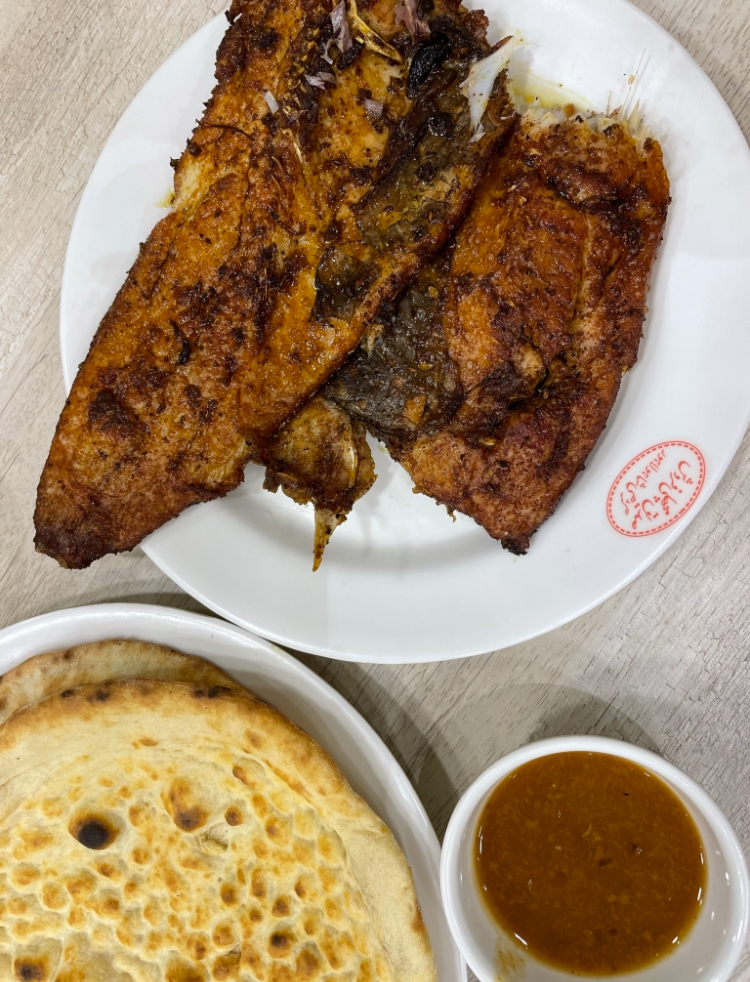
Vegetarians Traveling in Pakistan
Pakistani is a meaty cuisine. If you’re a vegetarian or vegan you are probably going to have a very different food experience than us meat eaters. It’s definitely possible to travel in the country as a veggie, but you’ll probably have to stick to dal, bread, and rice for the duration of your stay.
Is street food safe to eat in Pakistan?
People always ask me about the safety of street food. I eat street food in every single country I travel to. In all my food poisonings around the world, only one has likely been a result of street food. This is because street food is usually cooked right in front of you. Food poisoning is more often to occur from pre-prepared food that is allowed to sit in the heat or cross-contaminate in some way.
Pakistani street food is no different. If you’re very concerned about it, I would avoid the fruit juice stands or anything prepared without heat. These actually have the highest likelihood of getting you sick.
Safety in Pakistan & Other Important Concerns
Let’s wrap up this Pakistan travel guide and dig into all the other things random things you need to know about travel in Pakistan.
Pakistan is not as dangerous a place as it is portrayed.
I know above I said it’s not easy for solo women, but that does not equate to a DANGEROUS place to travel. I think the dangers of Pakistan are often overhyped in the media. And then underhyped by certain influencers who travel there. The truth is…every single country/place poses some risk of death. Humans are fragile beings.
Are Theft/Muggings a Problem in Pakistan?
Not so much. Because Pakistan is a deeply religious country theft is far more common to occur from other foreigners than devout Muslims. The only city I was cautioned about for muggings was Karachi. But again, I did not feel that was a concern while I was traveling in the city.
You should exercise normal caution with your belongings and be aware of your surroundings, just as you should anywhere else.
Is Sexual Assault a Major Problem in Pakistan?
If you are a solo woman, I would say that you should take some higher than normal precautions…not because assault is rampant but because there are many occasions I heard of where men in the country “got the wrong idea” about. foreign woman’s romantic interest because of small things you might do without thinking about it. Accepting invitations to one-on-one encounters, an innocuous shoulder touch or hug, or even just the audacity to have prolonged eye-contact with someone as a lone woman.
This is not meant to scare you. I don’t know anyone who was sexually assaulted in Pakistan. I wasn’t groped in the country. I’m just laying out the male/female dynamic that *could* conceivably create an awkward situation when a man interprets that “she definitely is interested in me, I should make a move” when that was NOT the intention.
Terrorism? Murder??
Listen, I’m not going to say that attacks don’t occasionally occur in Pakistan. But they occasionally occur in the USA, France, and UK. They usually target police and military compounds and rarely, are tourists ever anywhere near the area of attack. Personally, I think it’s far more likely you slip and die in the shower while attempting to give yourself a bucket shower.
The most dangerous part of Pakistan? The roads.
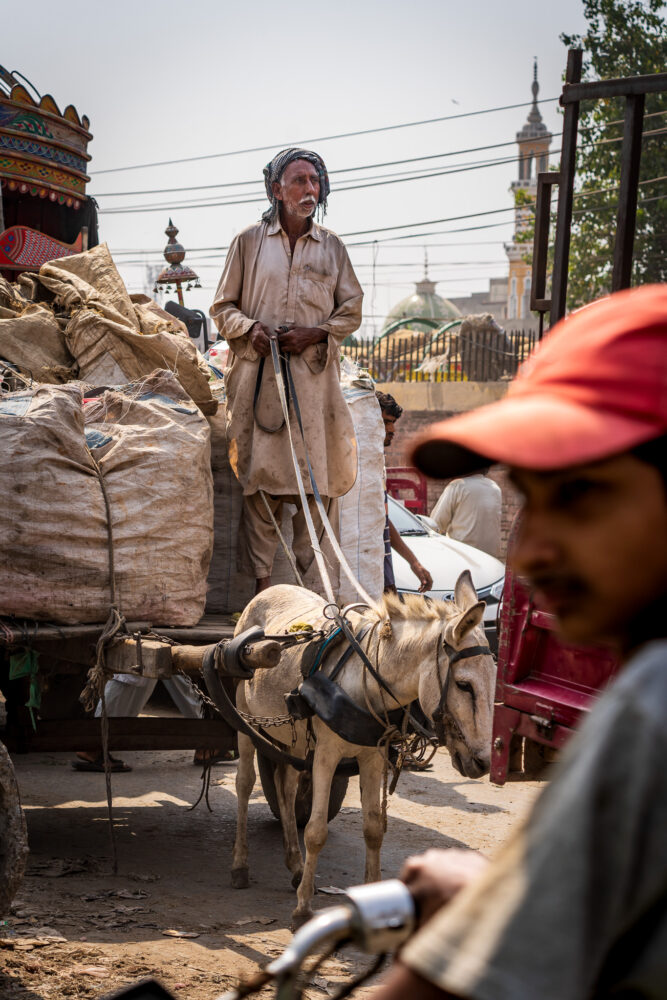
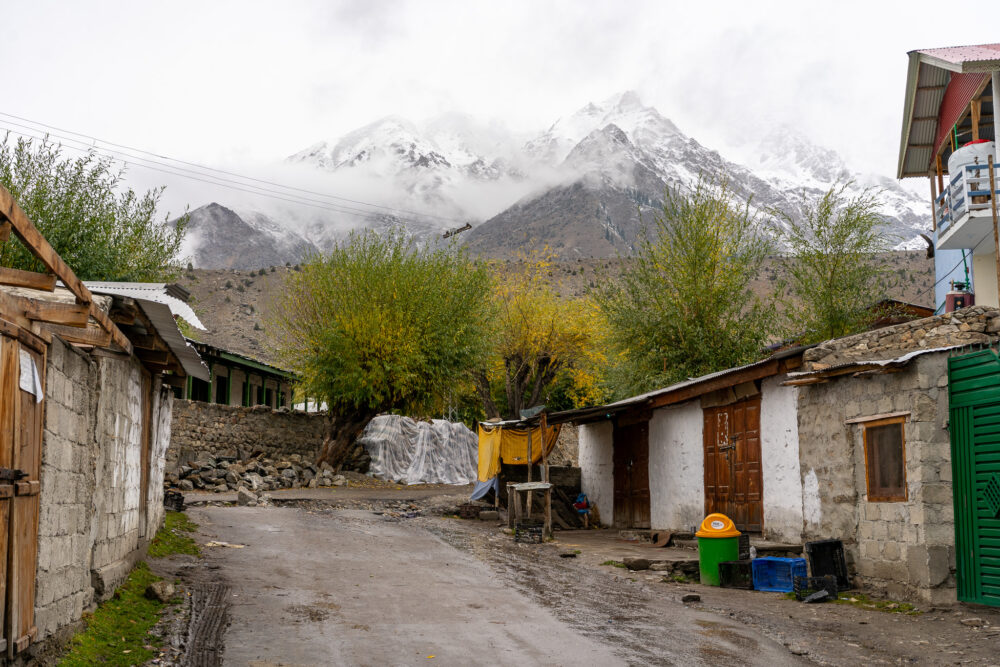
And yet, you will still probably survive. Pakistan’s roads are very much like India’s. There is a crush of traffic, potholes, and chaotic driving maneuvers. But added to that is the volatility of the landscape. Expect delays while traveling into the North from landslides, floods, and various other natural causes.
Prepare for stares.
I think this is what makes some travelers feel unsafe or uncomfortable in Pakistan.
And while obviously, not every look is friendly (it’s not in any country), Pakistani people are very, very curious about foreigners, and in remote regions, they don’t see a lot of them. You’ll often get stares. Not always with smiling faces. But that’s just the way it is. Get comfortable being in the spotlight real fast.
Be cautious when drinking refilled water bottles.
Unlike many Southeast Asia countries where locals have switched to bottled water, Pakistani residents outside the major cities often drink naturally filtered or glacial water.
Foreign tourists without the gut biome to back up their culinary adventures often get sick because of this. But sometimes you’ll be totally fine. It’s 50/50. So spin the chamber if you’re feeling lucky. Otherwise, check the bottle seals even in hotels.
Lassi, juice, and fresh vegetables or fruits are the most common food items that disagree with tourists stomachs in Pakistan because of the water used in the preparation.
Getting in the Right Mental State for Travel in Pakistan
Finally, your mental state. Part of this Pakistan travel guide is getting in the right headspace. Pakistan is a country that is likely to test your limits in many ways. But it’s important to keep a cool head and to enjoy your time in the country.
Always remember, don’t panic.
This is the key to traveling in difficult regions. Just relax. Things have a way of working out in Pakistan.
Your plans will change all the time. Flexibility is key.
Despite writing this Pakistan travel guide, not once has our planned Pakistan itinerary unfurled flawlessly before us. Strikes, fuel shortages, landslides, security issues, and unreliable transportation schedules hinder travel. There is also the fun stuff like new friends or just learned of sights and destinations. Either way— you should prepare to throw your entire route out the window. And give yourself much more time than you think you need in the country.
Read More: That being said, we do have a month-long recommended route to follow.
Remember: Pakistan is filled with the kindest and most hospitable people you will ever meet.
Please don’t take advantage of their hospitality without giving back.
This means not haggling over every single dollar, bringing gifts if you visit people’s homes, being gracious and accommodating, and picking up the bill for family-style dinners if you can.
Every step of the way, we were hosted in people’s homes, gifted lovely souvenirs from new friends, and given free meals at restaurants that were excited to host foreigners—so much so that I felt bad not being allowed to contribute.
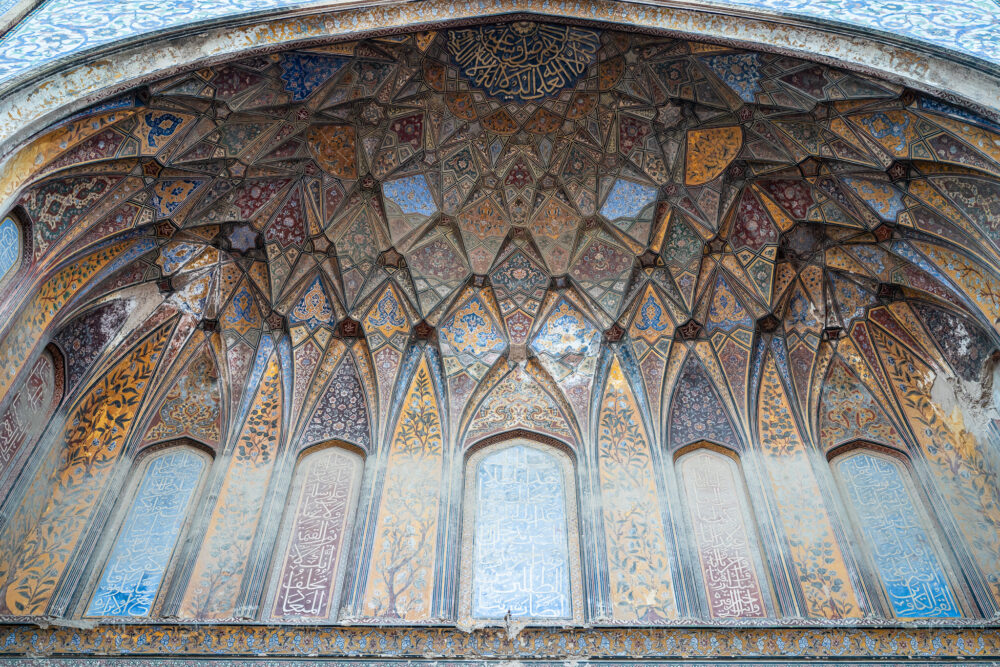
As a traveler, even one on a tight budget, you are in the top 1% of the world. Pakistan is a nation where many live in poverty. You’ll notice how far your dollar goes in the country immediately. In fact, we spent around $40 per day in Pakistan as a couple. As a visitor, it’s in bad taste not to give back when you can.
You Are Officially Ready to Take on Pakistan!
This Pakistan travel guide covers the basics of what to expect in Pakistan, how to find cheap yet comfortable hotels in Pakistan, and how to stay safe within the country, even as a solo female. If you have any Pakistan-specific questions that you think would benefit this article, throw them in the comments, and I will answer as best I can!
Save This Pakistan Travel Guide For Later!
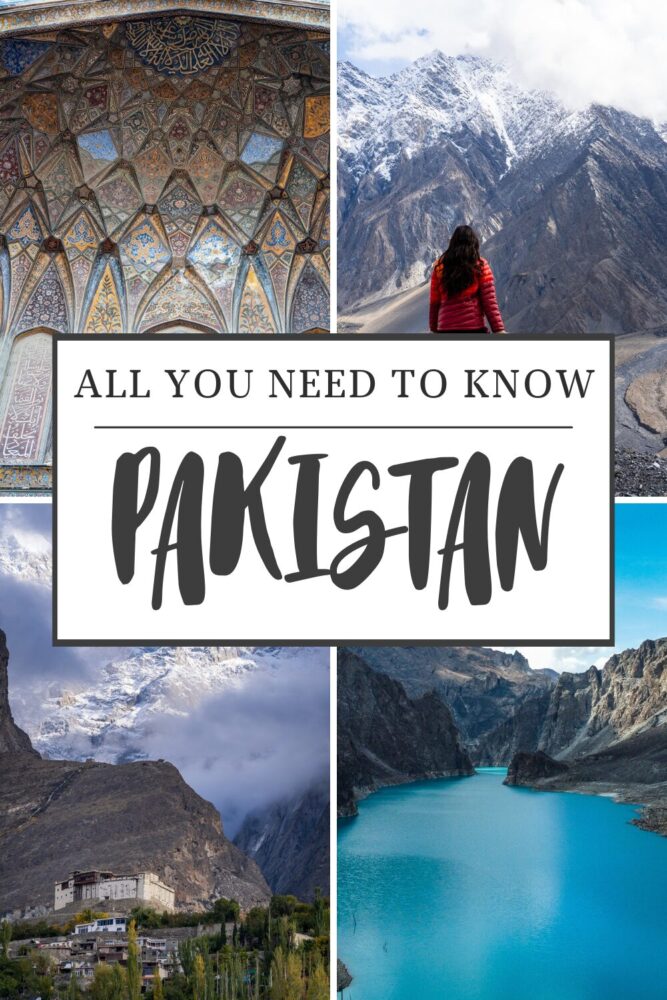
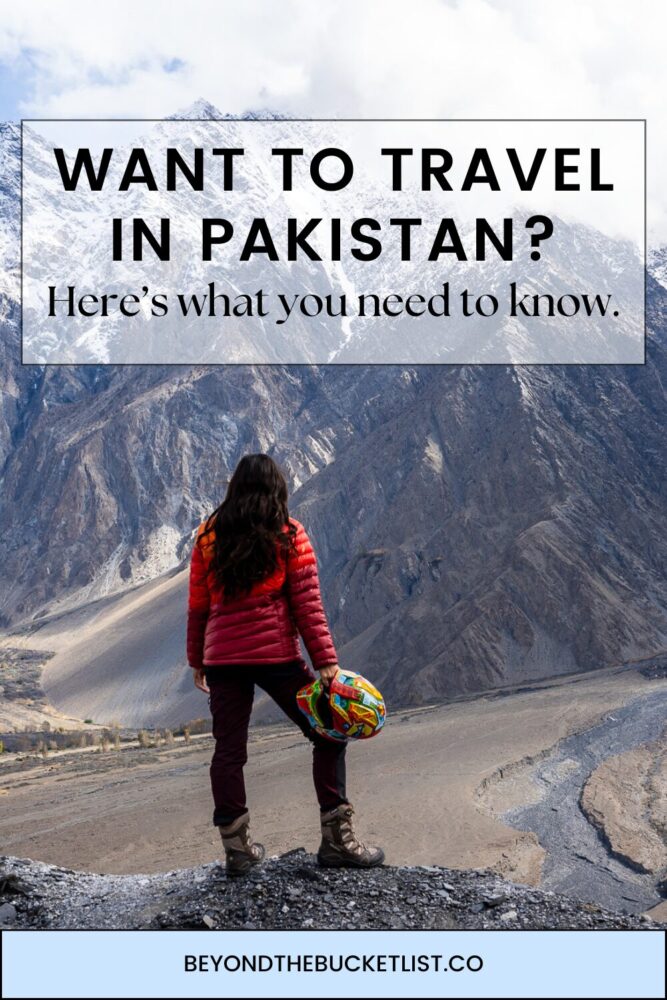
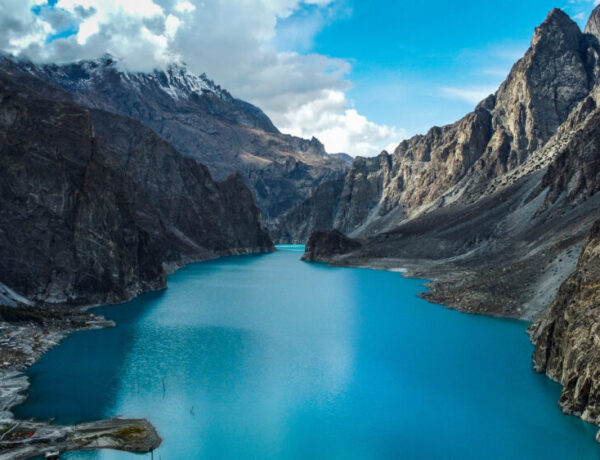
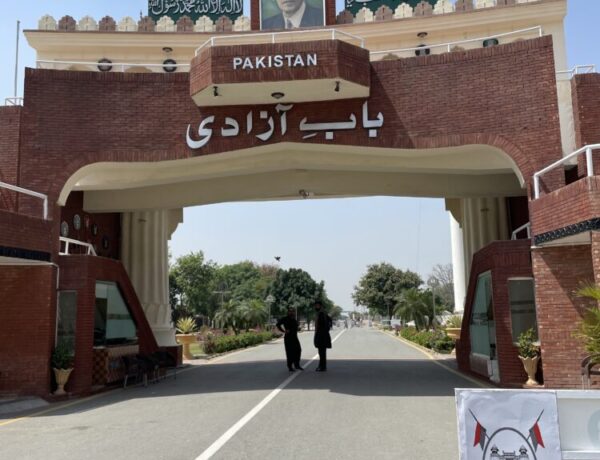
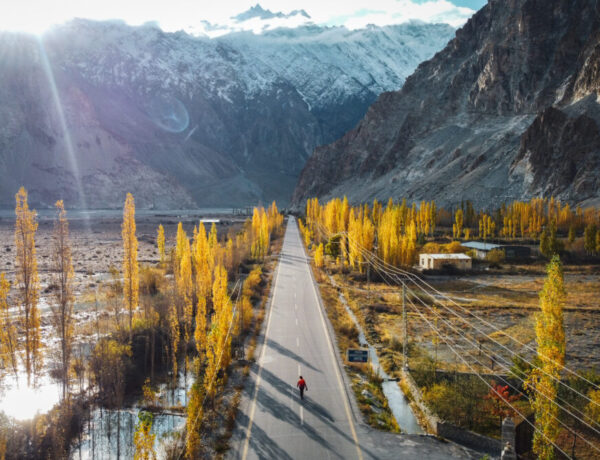
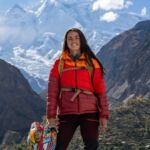

No Comments